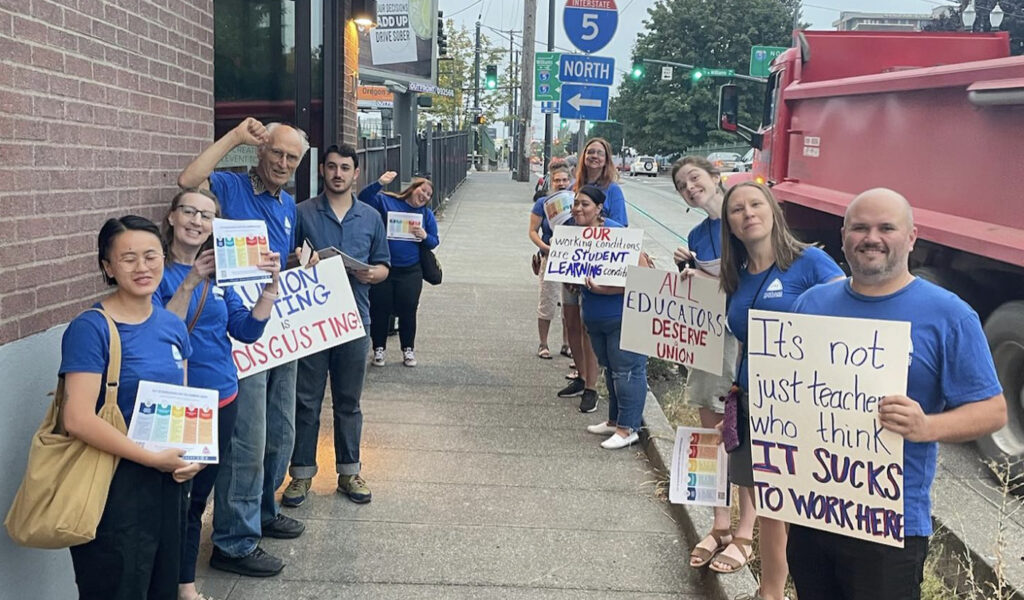‘Wrong by $50 or $100 million’: Former Portland teachers’ union bargaining chief condemns November strike in scathing letter
The former bargaining chief of the Portland teachers’ union released a scathing letter chastising the union president and questioning the union’s bargaining tactics after November’s lengthy…

The former bargaining chief of the Portland teachers’ union released a scathing letter chastising the union president and questioning the union’s bargaining tactics after November’s lengthy strike.
Steve Lancaster, who served as the bargaining chair for the Portland Association of Teachers (PAT) from 2014 to 2023, had a list of problems with how the strike was handled.
Lancaster’s letter, which was obtained by the Willamette Week, specifically criticized PAT president Angela Bonilla for her dictatorial tactics.
He recalled that during the strike, Bonilla made several “unilateral decisions” and was angered when the bargaining team met without her – even though it was standard practice.
“The President began the caucus meeting by expressing extreme displeasure at not being in the room for the deliberations on the president’s proposal and demanded that no such meetings ever be held again,” Lancaster wrote. “The President introduced a set of norms for the Bargaining Team, however, these norms did NOT address what happens when the Bargaining Team disagrees with the President.
“The demand of the President to be present in the room during all deliberations and the use of selective norms had the effect of rendering the President effectively immune from dissent.”
Lancaster also had several problems with how PAT approached negotiations.
He argued the union had too many issues on the table and that “many of these were related to the concept of ‘Community Schools,’ of which our membership was mostly unaware.”
Because the union did not prioritize which issues were most important to its members, the union’s proposal “was too sweeping in scope to be bargained with any real chance of success.”
That reality played out when PAT and the district were unable to reach a settlement for the entire month of November – allowing Portland’s 50,000 students to fall behind.
Besides higher pay, issues on PAT’s original bargaining platform included demands such as racial equity and “anti-racism” training, universal pre-K, the right to nap for preschoolers, reduced testing requirements and welfare services for families in crisis.
Lancaster ended his letter by blaming the union for overestimating the district’s available funds and lacking a “plausible financial strategy.”
“The total cost of our proposal was truly astronomical, leading The Bargaining Chair and others to frequently question how the District could pay for it,” he recalled. “This strike revealed the limits of brute force tactics in compelling financial concessions from the employer.
“Misestimating what they have or what ours costs by $10 or $20 million dollars is not problematic,” Lancaster continued, “but getting it wrong by $50 or $100 million, (as happened in this negotiation) can be a disaster.”
The final agreement between PAT and the district will cost $175 million over three years.
The strike garnered national attention and ultimately raised concerns about union leaders’ ability to bring public education to a grinding halt when striking during the school year.
Oregon state lawmakers have even suggested banning union strikes – which dozens of other states already do.



